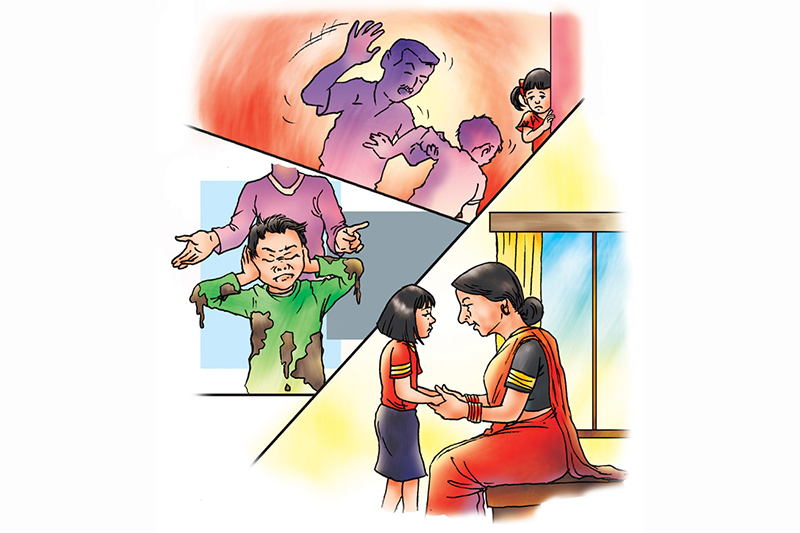Nepal, first S Asian country to criminalise corporal punishment of children
- Some rights activists have pointed out there are a number of shortcomings that the new law has regarding some issues related to children
Kathmandu, November 5
The new Children’s Act, 2018 criminalises corporal punishment of children, making Nepal the first country in South Asia and 54th country in the world to do so.
Section 66 (d) of the Act criminalises physical and mental torture or degrading treatment of children either at home, school or other places.
People below the age of 18 are defined as children in the Act.
The Act has listed 18 acts as violence against children and 11 as sexual offences against children.
The Act criminalises threat, discrimination against children and abandonment. Showing children movies or audiovisual materials meant for adults has also been criminalised.
The Act also says guardians should not send children below the age of six outside home without an adult accompanying them. It also criminalises taking children to dance bars, casinos and places offering adult entertainment. Involving children in gambling, drinking and smoking has also been criminalised. Tormenting children through electronic and other means of communication, illegal detention and handcuffing have also been criminalised. Anybody guilty of the aforementioned crimes will be slapped a fine not exceeding Rs 50,000 and imprisonment not exceeding one year.
The Act also criminalises involving children in political strikes, vehicular strikes and sit-ins. It also prohibits involvement of children in conflict.
The new law prohibits forcing children to beg or wear clothes meant for monks, sanyasis or fakirs or engaging them in circus or magical programmes. It also prohibits removing children’s organs and experimenting with medicines on them.
Anybody can lodge complaint against guardians, teachers, parents or persons committing or planning to commit crimes of violence or sexual offence against children.
As per the new Act, revelation of a child victim’s identity or information in sub judice related to children
will result in a fine not exceeding Rs 50,000 and imprisonment not exceeding one year.
Chairperson of Child Workers in Nepal Concern Centre Madhav Pradhan said the law prohibited employment of children below the age of 14 as domestic help and kamlari, but it did not clearly state the punishment for violation of the provision.
Krishna Subedi, Chairperson of Child Nepal called the new law regressive as it prohibited only use of children below 14 years in hazardous work. “Use of children below the age of 18 in hazardous work should be completely prohibited,” he said and added that the new bill had retained the old Muluki Ain’s provision of giving children below 10 years immunity from criminal prosecution. “All children below the age of 12 and not 10 should have such immunity,” he argued.
He also said the new law did not place responsibility of compensation for the child victim on the government. “The new law says that perpetrators will compensate. But what happens if the perpetrators flee or if they are not arrested for 20 years, should the children not get compensation?” he wondered. He said the government should compensate the child victim and recoup the amount from the perpetrator.






